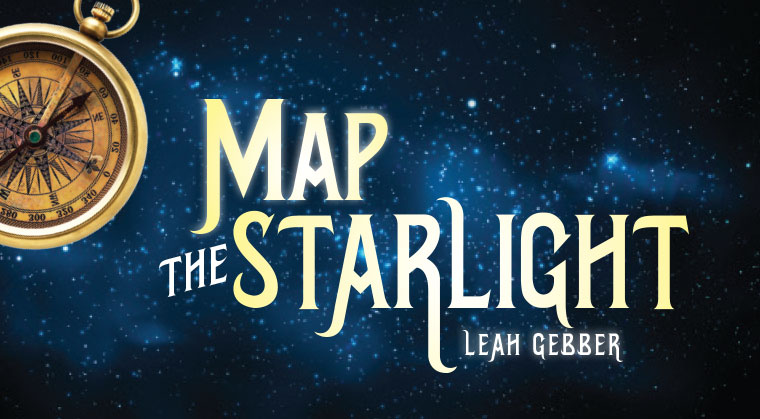Map the Starlight: Chapter 19


T he limes and sweet tangy oranges of winter are gone now and the vegetable market is a perfumed mist of peaches cherries and figs. Aster and Clara edge through the crowds their hands stretched out to feel the plump fruit gently roll it into baskets.
When their basket is filled with pink-and-yellow-streaked peaches they make their way to pay. Aster counts out the coins and spills them into a copper dish. The woman eyes the money the peaches then sharply inclines her head. “Thank you ” Aster says and she and Clara turn for home.
As Aster returns the money bag to her cloak Clara asks “Do you ever wonder what the astrolabe is worth?”
Something inside Aster clenches. She turns to her sister and speaks slowly and clearly. “It is worth the accuracy of Papa’s maps. It is worth the other calculations that he does with it — I do not know what they are.”
“But do you not question why Papa refused to give it to Jocef’s father for your dowry?” Clara’s face is pure and clear her gray eyes untroubled. Naïveté or deviousness? “I mean is it really worth more than his daughter’s happiness?”
The clenching turns to a slow but insistent burn. “How can you think that Clara? Of course Papa had my wellbeing in mind when the match was broken.”
They continue through the crowds of women and children crowding into the market to buy the first of the summer fruits. Rivkah the wife of the Shamash passes. She places her hand on Aster’s arm and Aster turns is forced to smile. “You already have your fruit I see ” she says. She takes a luxuriant sniff. “Nothing like the smell of summer on its way.”
“You must be thinking of your pastries.”
Rivkah smiles. “My husband says there is no honor of the Shabbat akin to the cherry pastries that come out of my kitchen.”
Aster and Clara nod then turn in relief as Rivkah continues onward. Clara swings the basket. “Sometimes you see an idea etches in Papa’s mind and then it cannot be shaken. It cannot be persuaded or reasoned with or disagreed with. It cannot be discarded. Was the breaking of your betrothal one of those times?” She thinks for a minute. “Sometimes I wonder what our lives would have been like were Mama still here.”
I think about that every day.
They turn the corner home is in sight. A few more steps and this conversation will cease. Aster takes a deep breath. “Clara be warned. Thoughts of blame lead to words of blame and from these are born deeds that bring shame upon us. I bid you to curb even thoughts of disrespect. Papa…” How can she even presume to say this? “Papa is a scholar a good man and a good father.”
“But—”
“No Clara. Loyalty. First and foremost loyalty.”
They are by the front door now. Clara enters first with the basket of fruit. Aster follows closing the door behind her as if she can shut away the questions Clara has dredged up from the deep.
That afternoon Papa calls her into the study. The sun is already low in the sky and a shaft of light falls across his face even as the rest of him is in shadow. Aster sees the sharpness of his cheekbones jutting out against his thin skin. Still even as age trawls across Papa’s face and his shoulders there is something indefinable there too. As if his skin no longer shadows the man inside but has become a veil and Papa the real Papa is closer.
“I have been thinking ” he begins.
Aster nods.
“These mapmaking lessons with Jocef. Is this a renewal of courtship?”
She squeezes her fingers together against each other. “No Papa.”
“Good.” He sniffs and straightens a volume on his desk. “Because you are not suited to each other.” (Excerpted from Family First Issue 562)
Oops! We could not locate your form.


